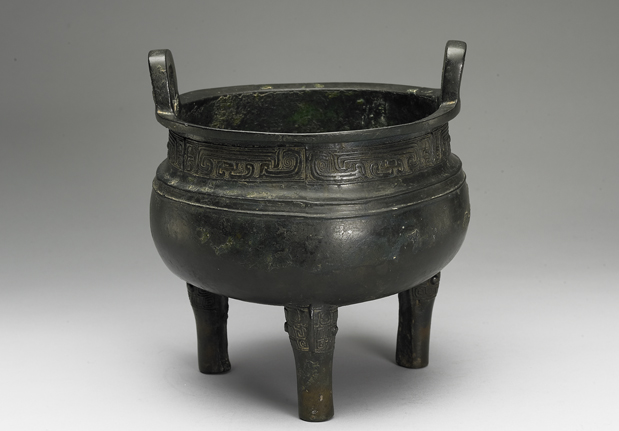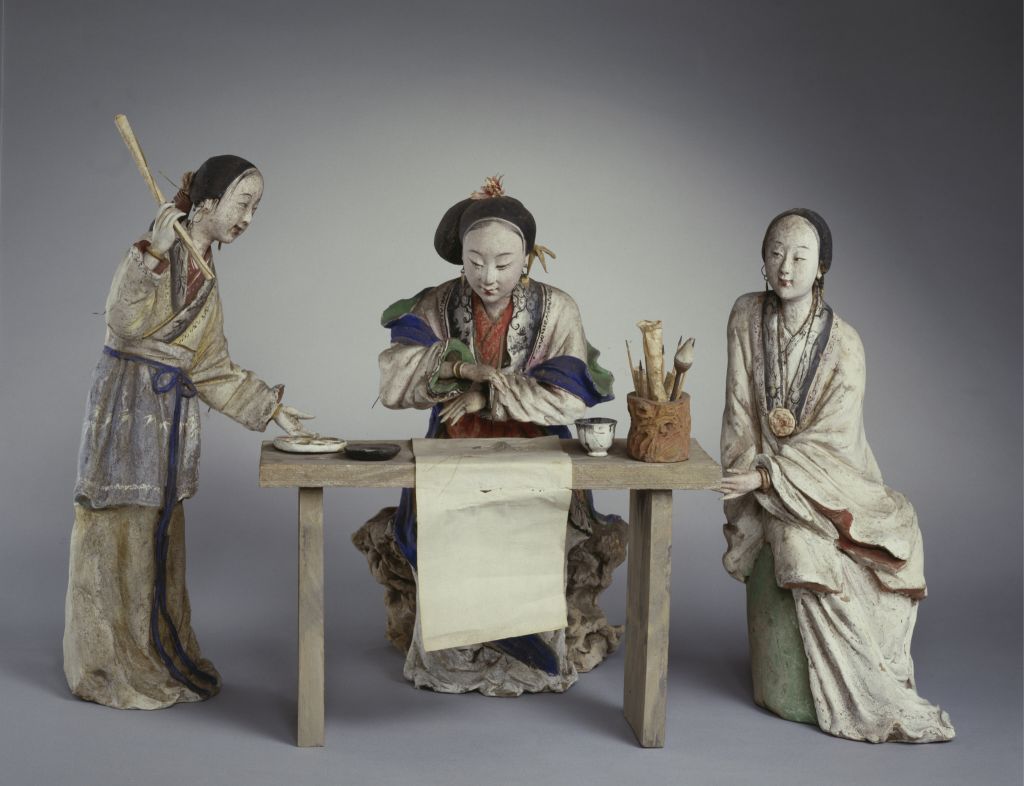Period:Eastern Zhou dynasty Production date:4thC BC-3rdC BC
Materials:bronze, gold, silver,
Technique:inlaid
Subjects:animal cat (?) wild cat/big cat (lion?)
Dimensions:Height: 24.50 centimetres (Mounted on perspex block) Height: 23 centimetres Weight: 913 grammes Width: 11 centimetres (Mounted on perspex block) Width: 9.50 centimetres Depth: 16 centimetres (Mounted on perspex block) Depth: 11.50 centimetres
Description:
Figure of a leaping feline (lion or cat), standing arched, with tail pointing to sky, head back, bared teeth and bulging eyes. Inlaid in gold and silver with stylized birds and snakes, as well as abstract designs including scrolls, curved lines and tear shapes. Made of bronze, it was probably used as a tray support.
IMG
![图片[1]-figure BM-1883-1020.5-China Archive](https://chinaarchive.net/Eastern Zhou dynasty/Bronzes/mid_00226930_001.jpg)
![图片[2]-figure BM-1883-1020.5-China Archive](https://chinaarchive.net/Eastern Zhou dynasty/Bronzes/mid_00520952_001.jpg)
Comments:Michaelson 2006:At this period the Chinese did not use chairs but sat on the ground, so tables placed before them were like trays on short legs. Following a ritual revolution in the 8th century BC it was no longer so important to have the elaborate bronze ritual vessels for ancestral sacrifices, and many fewer were made. Lacquer, which could be very colourful, was becoming increasingly popular and to compete with this material, the bronze manufacturers used gold, silver and copper inlays, as well as semi-precious stones and even glass, to decorate their bronzes. The swirling, painterly and somewhat geometric style of decoration of this piece, the spiral and alternation of widths, and the bird-head terminals are all reminiscent of lacquer work of about the same period. Such imaginative decorative arrangements are probably related to the south of China.
Materials:bronze, gold, silver,
Technique:inlaid
Subjects:animal cat (?) wild cat/big cat (lion?)
Dimensions:Height: 24.50 centimetres (Mounted on perspex block) Height: 23 centimetres Weight: 913 grammes Width: 11 centimetres (Mounted on perspex block) Width: 9.50 centimetres Depth: 16 centimetres (Mounted on perspex block) Depth: 11.50 centimetres
Description:
Figure of a leaping feline (lion or cat), standing arched, with tail pointing to sky, head back, bared teeth and bulging eyes. Inlaid in gold and silver with stylized birds and snakes, as well as abstract designs including scrolls, curved lines and tear shapes. Made of bronze, it was probably used as a tray support.
IMG
![图片[1]-figure BM-1883-1020.5-China Archive](https://chinaarchive.net/Eastern Zhou dynasty/Bronzes/mid_00226930_001.jpg)
![图片[2]-figure BM-1883-1020.5-China Archive](https://chinaarchive.net/Eastern Zhou dynasty/Bronzes/mid_00520952_001.jpg)
Comments:Michaelson 2006:At this period the Chinese did not use chairs but sat on the ground, so tables placed before them were like trays on short legs. Following a ritual revolution in the 8th century BC it was no longer so important to have the elaborate bronze ritual vessels for ancestral sacrifices, and many fewer were made. Lacquer, which could be very colourful, was becoming increasingly popular and to compete with this material, the bronze manufacturers used gold, silver and copper inlays, as well as semi-precious stones and even glass, to decorate their bronzes. The swirling, painterly and somewhat geometric style of decoration of this piece, the spiral and alternation of widths, and the bird-head terminals are all reminiscent of lacquer work of about the same period. Such imaginative decorative arrangements are probably related to the south of China.
© Copyright
The copyright of the article belongs to the author, please keep the original link for reprinting.
THE END
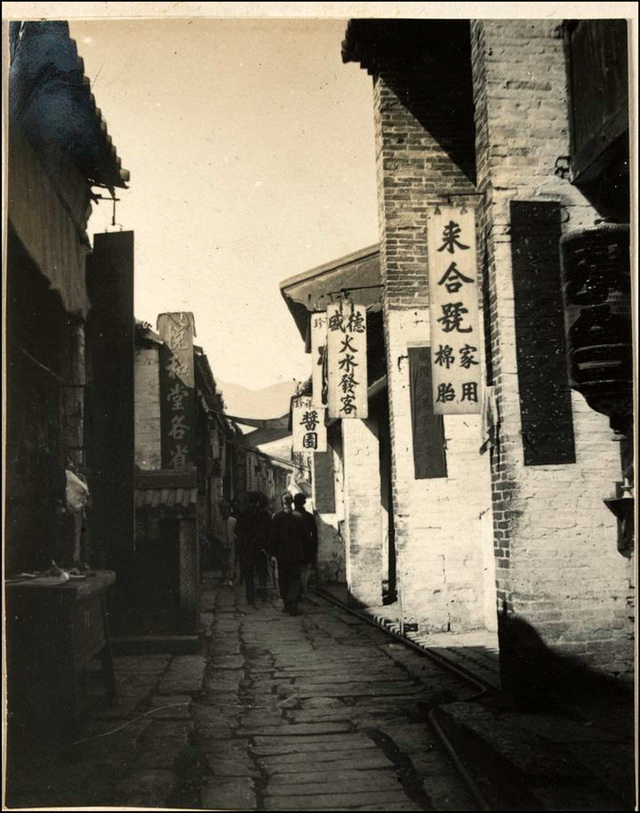
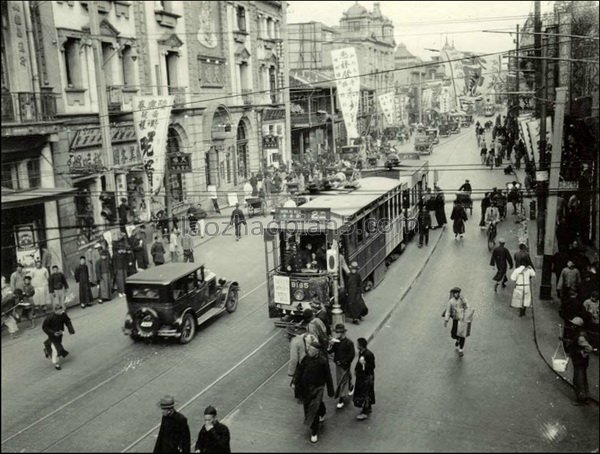
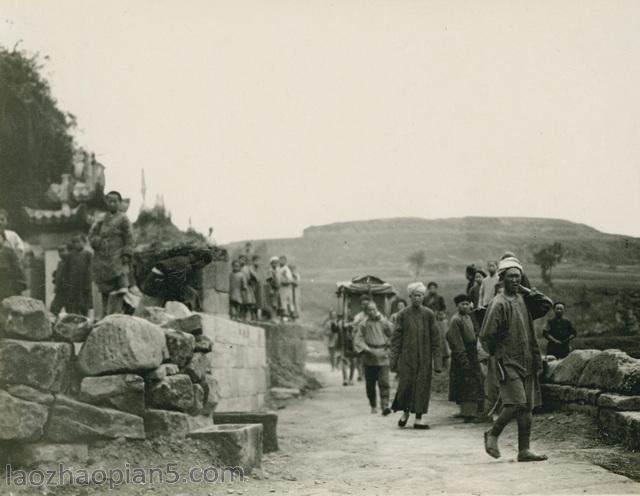
![[Qing Dynasty] British female painter—Elizabeth Keith, using woodblock prints to record China from the late Qing Dynasty to the early Republic of China—1915-China Archive](https://chinaarchive.net/wp-content/uploads/2022/11/image-191x300.png)
